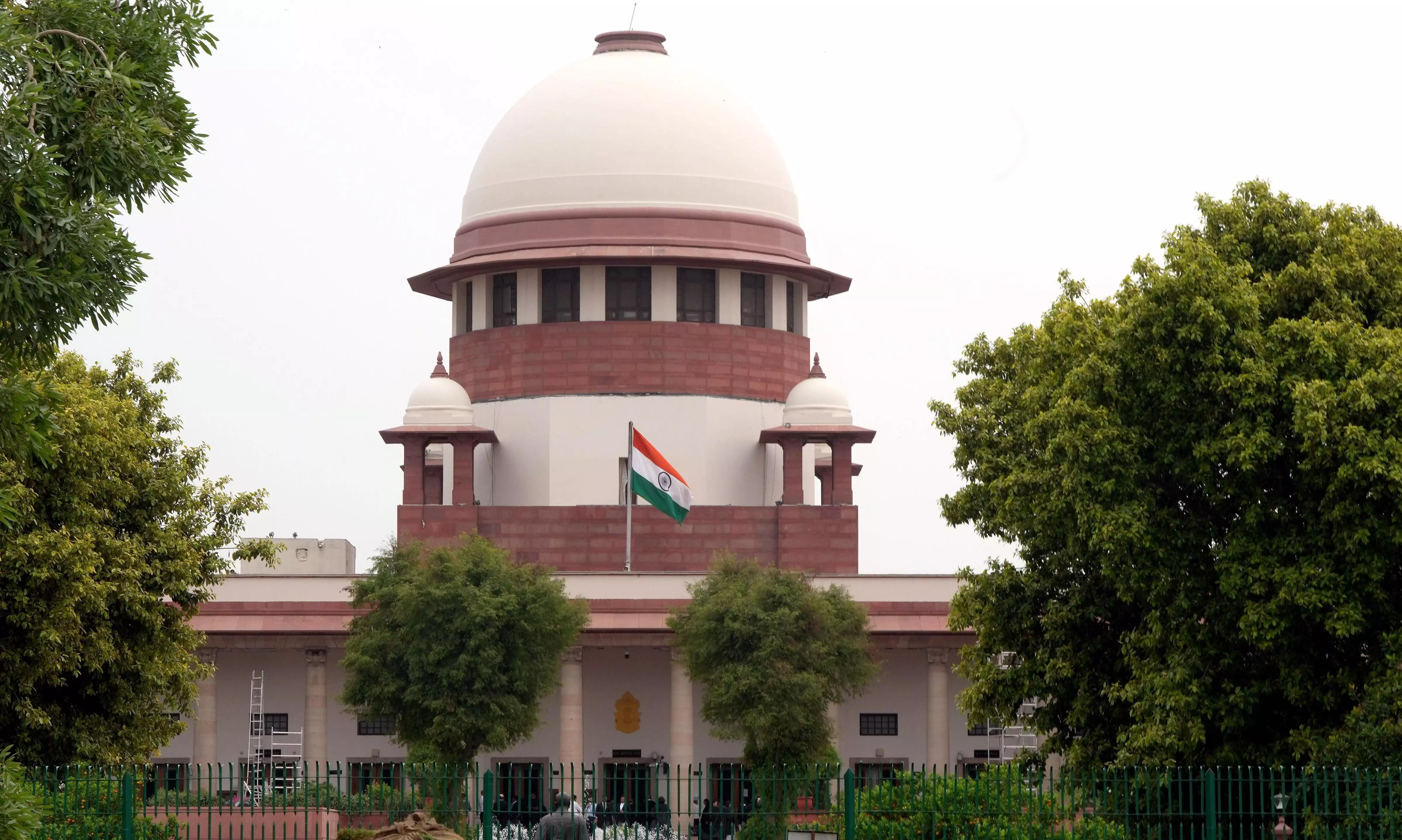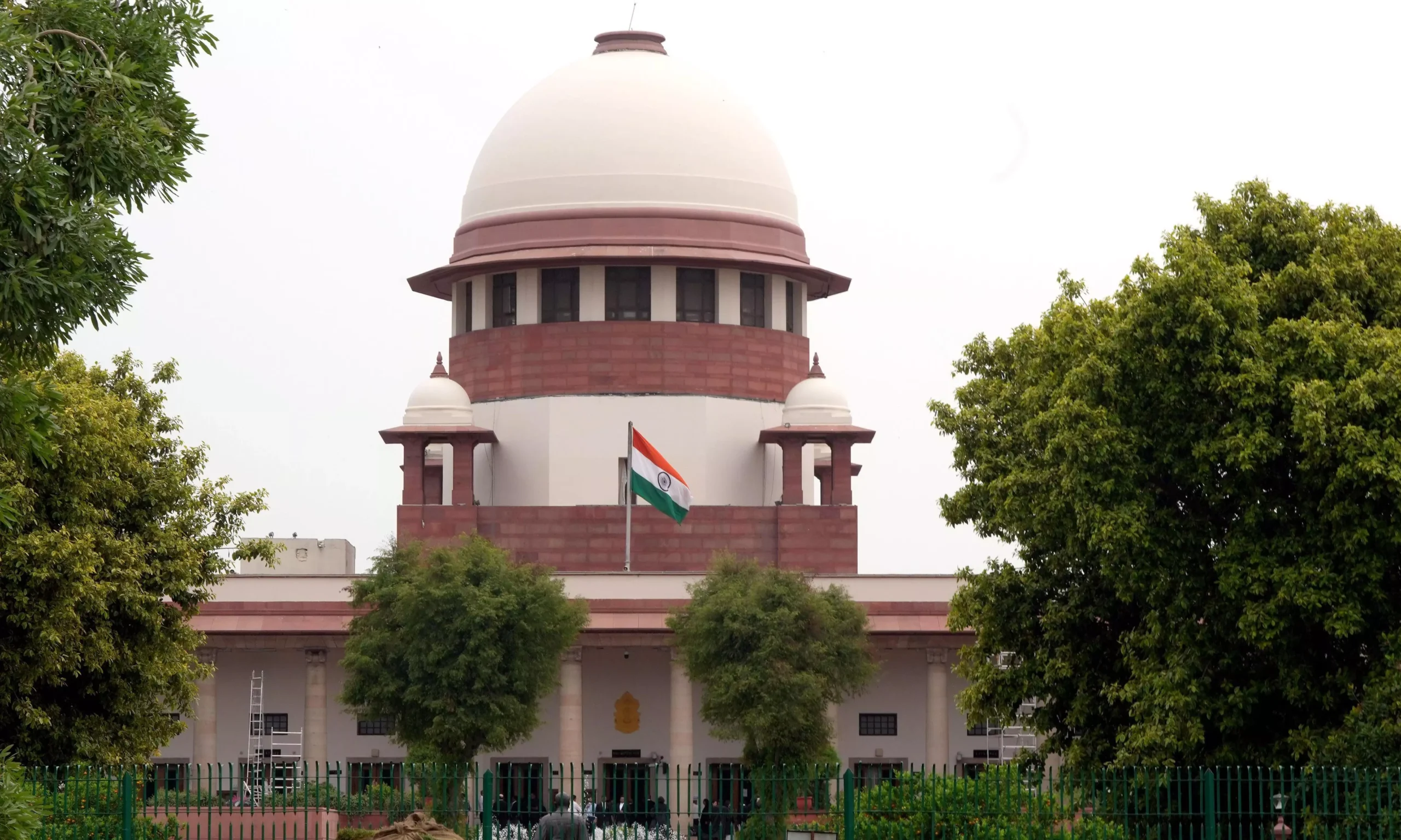
New Delhi: In a landmark verdict, the Supreme Court on Monday held that downloading and watching child pornography constitute offences under the Pocso Act and the Information Technology Act.
Observing that “sexual exploitation of children is a pervasive and deeply rooted issue that has plagued societies worldwide and has been a matter of serious concern in India”, the top court ruled that mere possession of such material, even if they are not disseminated further, will fall under the ambit of the penal provisions of these two laws.
The judgment came on a plea challenging a Madras high court order that ruled that mere downloading and watching child pornography was not an offence under the Protection of Children from Sexual Offences Act and IT Act.
Setting aside the Madras high court ruling, the apex court bench comprising Chief Justice of India D.Y. Chandrachud and Justice J.B. Pardiwala said: “Parliament should seriously consider bringing about an amendment to the Pocso Act for the purpose of substituting the term ‘child pornography’ with ‘child sexual exploitative and abuse material’ (CSEAM) with a view to reflect more accurately on the reality of such offences. The Union of India, in the meantime, may consider bringing about the suggested amendment to Pocso by way of an ordinance.”
The top court also directed the courts not to use the term “child pornography” and substitute it with CSEAM and laid down certain guidelines on child pornography and its legal consequences.
“We put the courts to notice the term ‘child pornography’ shall not be used in any judicial order or judgment, and instead the term ‘child sexual exploitative and abuse material’ (CSEAM) should be endorsed,” the bench said.
The top court verdict came on a plea challenging the January 11 Madras high court order which had quashed the criminal proceedings against S. Harish, 28, charged with downloading pornographic content involving children on his mobile phone. Mr Harish was facing a criminal case under the Pocso Act, 2012 and IT Act, 2000.
The verdict said: “We have reached the conclusion that the high court committed an egregious error in passing the impugned judgment. We are left with no other option but to set aside the impugned judgment and order passed by the high court, and restore the criminal proceedings in Spl. S.C. No. 170 of 2023 to the court of Sessions Judge, Mahila Neethi Mandram (Fast Track Court), Tiruvallur District. We accordingly pass such order.”
Underscoring that children were entitled to grow up in an environment that respects their dignity and protects them from harm, the top court said: “Child sexual exploitative material is deeply degrading to the dignity of children. It reduces them to objects of sexual gratification, stripping them of their humanity and violating their fundamental rights.”
CSEAM violates this right in the most “egregious manner possible” and the existence and circulation of CSEAM were affronts to the dignity of all children, not just the victims depicted in the material, the bench said.
The apex court said: “Given the severity and far-reaching consequences of child sexual exploitation, there is a clear legal and moral imperative to take strong action against those who produce, distribute and consume CSEAM. This includes not only criminal penalties for those involved in CSEAM but also preventative measures, such as education and awareness campaigns.”
Justice Pardiwala, who wrote the 200-page verdict for the bench, said laws must be robust and strictly enforced to ensure that perpetrators are brought to justice and that children are protected from further harm.
The bench said the impact of CSEAM on its victims was devastating and far-reaching, affecting their mental, emotional and social well-being.
“In our society, where social stigma and notions of honour and shame are deeply entrenched, the social repercussions for victims are particularly severe. Many victims face intense social stigmatisation and isolation, finding it difficult to form and maintain healthy relationships due to trust issues and trauma-related challenges,” it said.
The top court said the stigma attached to being a victim of CSEAM can create significant barriers in social interactions, causing victims to withdraw and feel alienated from their communities.
“The continuous revictimisation through the sharing and viewing of these materials perpetuates the victims’ suffering. Each instance of someone viewing or distributing the material represents a new violation, making it harder for victims to heal,” reads the verdict.
The top court said this ongoing trauma can severely impact their self-esteem and self-worth, leading to long-term emotional and psychological damage and the impact extends to their education and employment opportunities.
The also suggested that implementing comprehensive sex education programmes that include information about legal and ethical ramifications of child pornography can help deter potential offenders.
“These programs should address common misconceptions and provide young people with a clear understanding of consent and the impact of exploitation,” it said.
The top court suggested that schools can play a crucial role in early identification, intervention and implementing school-based programmes that educate students about healthy relationships, consent and appropriate behaviour and can help prevent problematic sexual behaviours (PSB).
“To give meaningful effect to the above suggestions and work out the necessary modalities, the Union of India may consider constituting an expert committee tasked with devising a comprehensive program or mechanism for health and sex education, as well as raising awareness about Pocso among children across the country from an early age, for ensuring a robust and well-informed approach to child protection, education, and sexual well-being,” it said.
